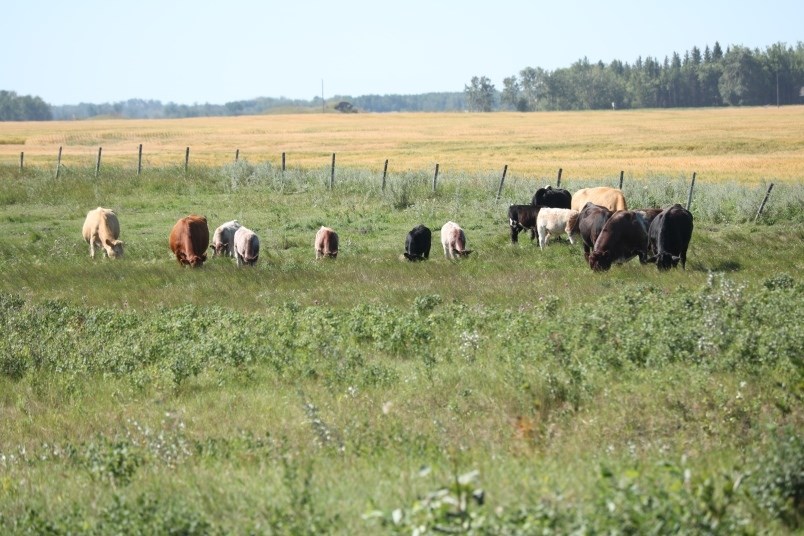Three University of Regina researchers have been awarded close to $600,000 from Saskatchewan’s Agriculture Development Fund (ADF) for their livestock and forage-related research projects. This funding is part of $7.5 million total funding announced today by Canada’s Minister of Agriculture and Agri-Food Maire-Claude Bibeau and Saskatchewan Agriculture Minister David Marit.
Dr. Kerri Finlay, associate professor with the Faculty of Science, received $279,125 for her project Sulfate removal from agricultural ponds for improved cattle health: evaluating regional and local controls. Through her research, Dr. Finlay will help address water quality concerns that could affect cattle health on the prairies by identifying controls of sulfate concentrations in cattle-accessed dugouts and ponds on farmland. She will then use this information to evaluate mitigation opportunities to improve water quality.
Sulfate concentrations in agricultural dugouts and ponds are currently one of the largest threats to water quality for cattle health on the prairies. In an examination of 100 dugouts across Saskatchewan over three years, Finlay found that one-quarter of the sites were of poor quality for cattle access, and nearly 10 per cent of dugouts were unsuitable.
The sulfate concentrations in water are the result of many interacting regional and local factors. Across landscapes, sulfate levels in water are controlled by the surrounding geology that supplies the sulfur, and the patterns of water movement that potentially delivers it into a body of water.
Finlay’s goal with this research project is to provide recommendations for prevention and mitigation of sulfate concentrations in agricultural dugout and pond water.
“As climate change and human activities alter the movement of water across the prairie landscape, it is imperative that we be able to predict and mitigate the impacts on water quality,” says Finlay. “We hope that this research will provide tangible solutions to an increasingly problematic water quality issue for cattle farmers.”
Dr. Wu Peng, assistant professor in the Faculty of Engineering and Applied Science, received $149,000 for his project The application of artificial intelligence in agricultural land flooding prediction in Southern Saskatchewan. Wu’s research will address the current need to better understand the interaction between agricultural activities, climate change, and flooding in the prairies. Wu and his research team will utilizes a three-pronged approach to analyze and predict the agricultural flooding in southern Saskatchewan.
Dr. Denise Stilling, associate professor in the Faculty of Engineering and Applied Science, received $150,000 for her project Discoveries in Extrusion Pulping Agricultural Crop Residue into Compostable Products. Stilling’s research will help to address the negative environmental impact of single-use plastics by exploring how cereal and flax straw can be utilized to make decomposable drinking straws, stir sticks, container sleeves and medical devices, such as temporary drainage stents.
“This recent funding from the Agriculture Development Fund will allow our researchers to develop new knowledge, information, and technology that will benefit farmers and ranchers in the province,” says Dr. Kathleen McNutt, Vice-President (Research). “The discoveries that we make today are an investment in the future of the province’s agriculture industry.”

